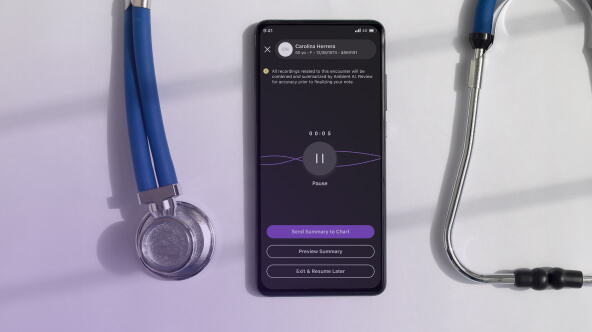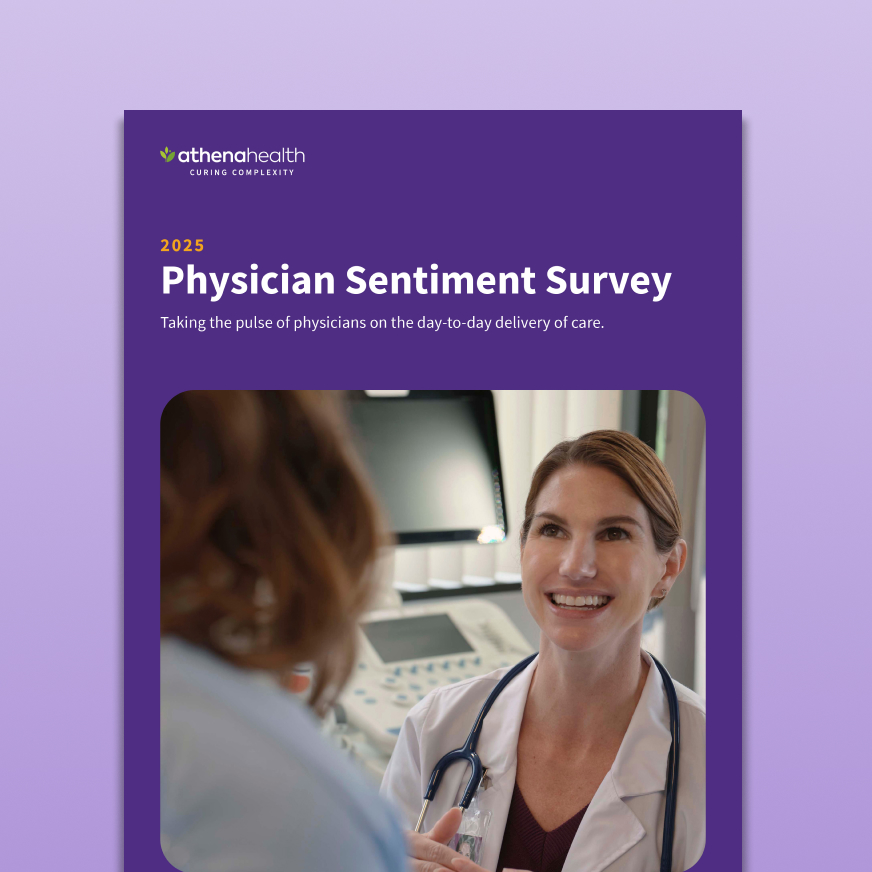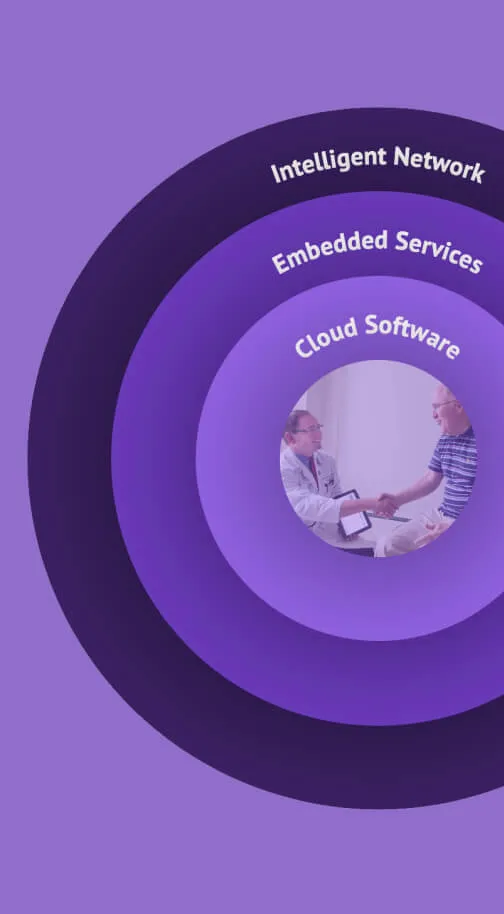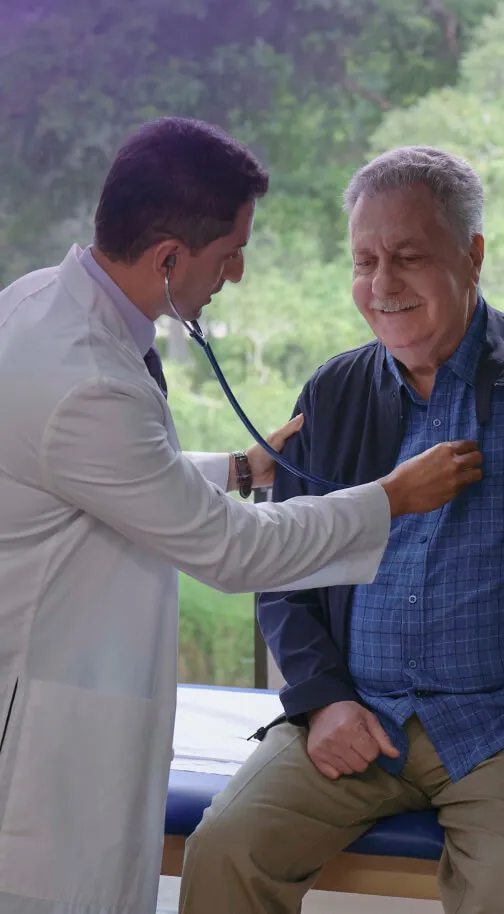Resource Center
All ContentBlogCase Studiesebooks
- Christy Maerz
- April 24, 2025
- 7 min read
Top benefits and use cases of AI in healthcare
AI use for administrative tasks is on the rise. But how do physicians feel about this digital transformation? Read moreYou may also like

- Christy Maerz
- April 24, 2025
- 7 min read
athenahealth research
Top benefits and use cases of AI in healthcare
AI use for administrative tasks is on the rise. But how do physicians feel about this digital transformation?
Read more 
- Downloadable
athenahealth research
2025 Physician Sentiment Survey
In our fourth annual Physician Sentiment Survey, we provide invaluable data and crucial results on the current state of healthcare from over 1,000 clinicians nationwide.
Read more athenahealth products
- 2 min watch
Driving clinical and revenue cycle efficiency from day one
Read more
- athenahealth
- April 24, 2025
- 4 min read
AI in healthcare
How Ambient Notes gave Dr. Smith her weekends back
Read how AI in healthcare has improved efficiency, accuracy, and patient care for Dr. Smith at Springfield Clinic.
Read more 
- Christy Maerz
- April 24, 2025
- 7 min read
athenahealth research
Top benefits and use cases of AI in healthcare
AI use for administrative tasks is on the rise. But how do physicians feel about this digital transformation?
Read more 
- Downloadable
athenahealth research
2025 Physician Sentiment Survey
In our fourth annual Physician Sentiment Survey, we provide invaluable data and crucial results on the current state of healthcare from over 1,000 clinicians nationwide.
Read more athenahealth products
- 2 min watch
Driving clinical and revenue cycle efficiency from day one
Read more
- athenahealth
- April 24, 2025
- 4 min read
AI in healthcare
How Ambient Notes gave Dr. Smith her weekends back
Read how AI in healthcare has improved efficiency, accuracy, and patient care for Dr. Smith at Springfield Clinic.
Read more 
- Christy Maerz
- April 24, 2025
- 7 min read
athenahealth research
Top benefits and use cases of AI in healthcare
AI use for administrative tasks is on the rise. But how do physicians feel about this digital transformation?
Read more Empower your practice

AI powered patient engagement
Learn how AI tools can help improve patient loyalty and outcomes.






